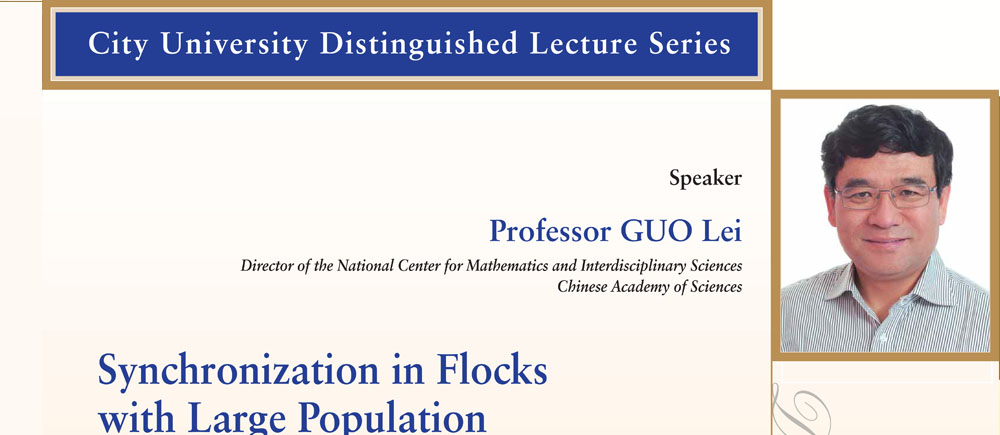
| Date: | 28 November 2012 |
|---|---|
| Speaker: | Prof. GUO Lei |
To understand how locally interacting agents lead to collective behaviors is a fundamental issue in complex systems. Such problems arise from diverse fields ranging from material and life sciences to social and engineering systems, and have attracted much research attention in recent years. In this lecture, we will consider the synchronization problem of some basic classes of flocks with large population, without resorting to any connectivity assumptions imposed on the dynamical trajectories of the flocks. Furthermore, we will consider how to intervene the collective behaviors of the flocks without changing the existing interaction rules of the agents. The main theorems are established based on analyses of the nonlinear dynamical equations involved and of the asymptotical properties of the spectrum of the corresponding random graphs.
Professor GUO Lei received his B.S. degree in mathematics from Shandong University in 1982, and Ph.D. degree in control theory from the Chinese Academy of Sciences (CAS) in 1987. He was a postdoctoral fellow at the Australian National University (1987-1989). Since 1992, he has been a Professor of the Institute of Systems Science at CAS. He has been the President of the Academy of Mathematics and Systems Science, CAS (2003-2012), and is currently the Director of the National Center for Mathematics and Interdisciplinary Sciences, CAS.
Professor GUO was elected Fellow of the IEEE in 1998, Member of the Chinese Academy of Sciences in 2001, Fellow of the Academy of Sciences for the Developing World (TWAS) in 2002, Foreign Member of the Royal Swedish Academy of Engineering Sciences in 2007, and Fellow of the International Federation of Automatic Control (IFAC) in 2007.